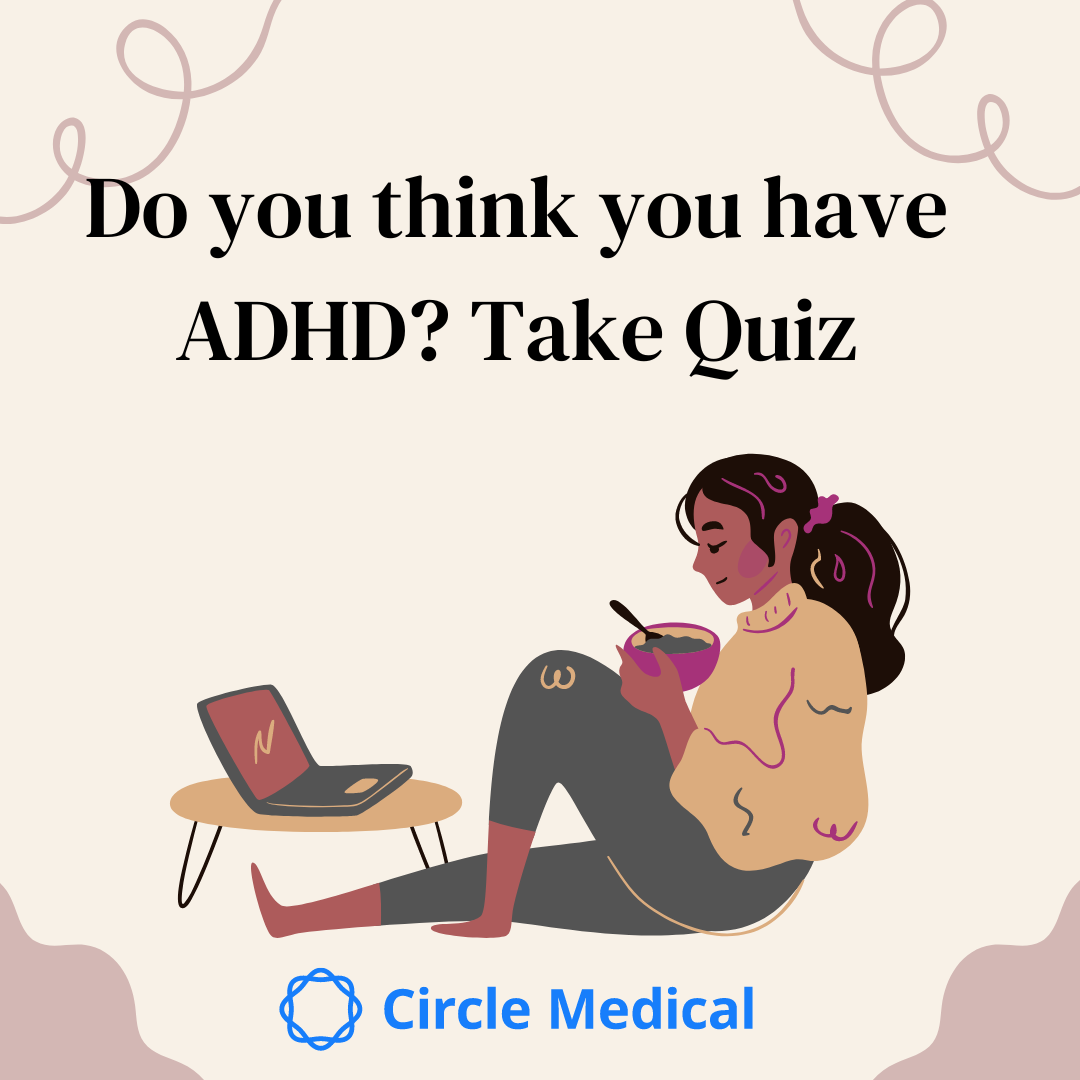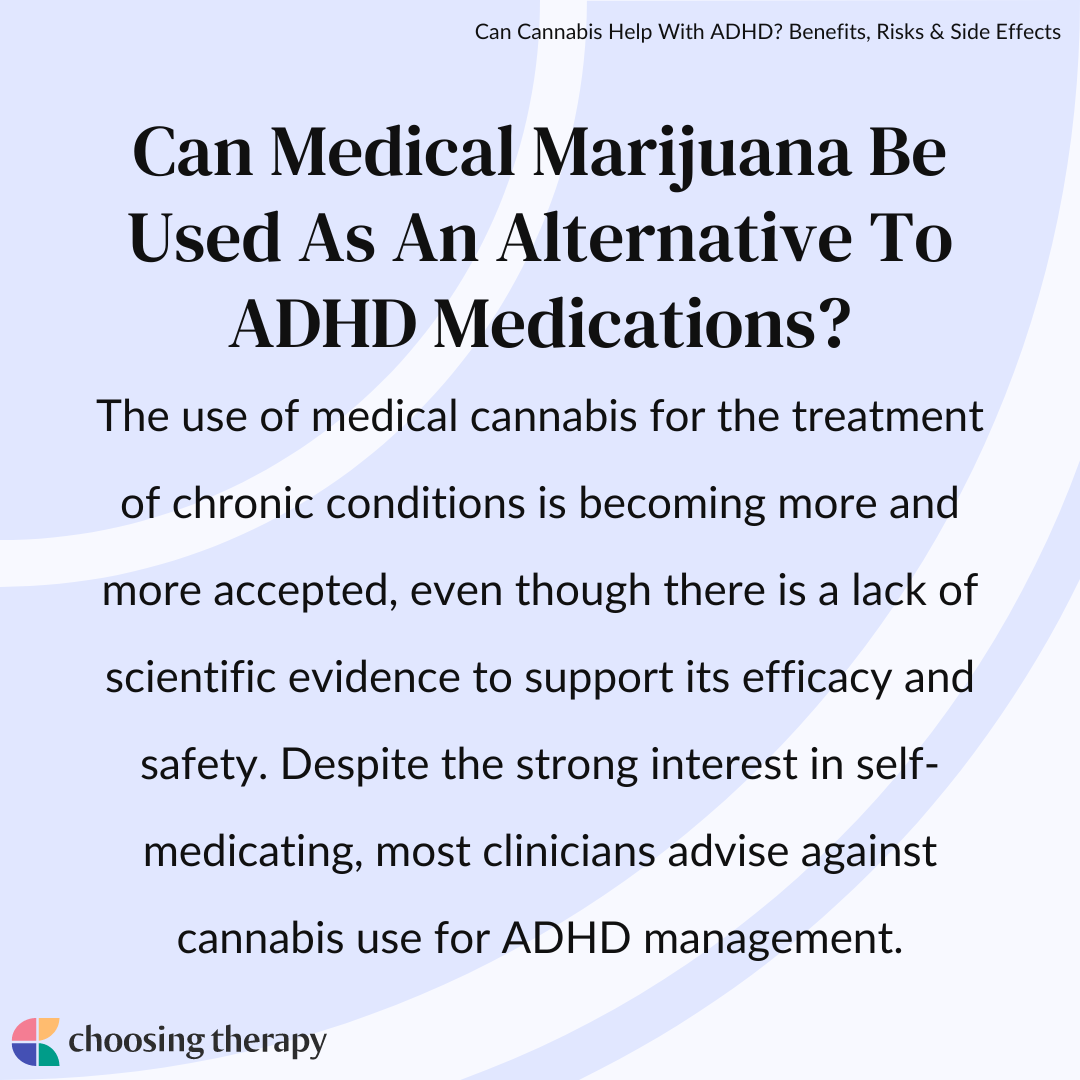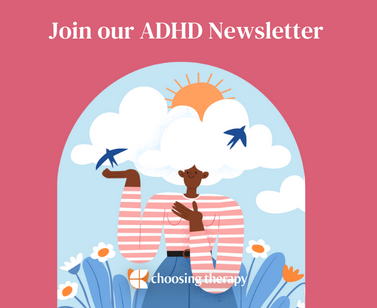The results are mixed, and research showing a connection between cannabis and the management of ADHD is limited. There are scientific studies and other evidence for and against the potential use of cannabis as a treatment for ADHD symptoms.
ADHD Management Tools Inflow App is the #1 science-based app to help you manage your ADHD. Their support system helps you understand your neurodiverse brain and build lifelong skills. Free Trial
What Is ADHD?
ADHD stands for Attention Deficit Hyperactivity Disorder. It is a brain disorder that is usually diagnosed in childhood but can persist into adulthood. The part of the brain that is impacted by ADHD is the frontal lobe. It controls essential functions such as organization, focus, motivation, and self-control. In someone with ADHD, the frontal lobe may develop slower.1
Neurodivergence is not a medical term or diagnosis.2 It refers to the fact that brains differ and therefore work differently. It is a way to describe the brain without having to use the words “normal” and “abnormal”, because the truth is, what is “normal”? If someone is not neurodivergent, the term used is “neurotypical.” There are certain conditions or disorders that are common among people who identify as “neurodivergent.” These include ADHD, autism, social anxiety, and sensory processing disorders.
ADHD Symptoms
The main symptoms of ADHD include inattentiveness (difficulty focusing, spacing out, easily distracted), hyperactivity (excessive movements, fidgety, restlessness), and impulsivity (hasty actions without much thought, interrupting, blurting things out).
Symptoms of ADHD include:
- Easily distracted
- Making careless mistakes
- Inability to complete tasks
- Forgetfulness
- Losing items
- Struggling with time management
- Blurting out answers
- Talking excessively
- Trouble waiting their turn
- Zoning out
- Overlooking instructions and details
- Daydreaming
- Impulsive eating
- Overspending
- Speaking too fast
- Unable to read social cues
- Poor emotion regulation
- Difficulty thinking ahead
What Does Cannabis Do To The Brain & Body?
Cannabis, which is also called marijuana, pot, weed, or dope, refers to a group of plants that are known for its relaxing and calming effects. It consists of more than 70 chemical compounds and produces a variety of effects.4 The two main compounds are THC and CBD. Tetrahydrocannabinol (THC) is the chemical that causes the psychoactive effects of cannabis. It is mind-altering. THC impacts the brain/body because it impacts cognitive function, including the ability to plan, organize, make decisions, remember, and control emotions and actions.
Cannabidiol (CBD) is not mind-altering and does not cause a “high.” CBD impacts the brain/body by helping to increase blood flow to the hippocampus. This is the part of the brain that is associated with memory and emotion. In some ways, it can give the brain a positive boost. Cannabinoids and terpenes are different. Cannabinoids are compounds like THC and CBD. Terpenes are naturally occurring compounds that contribute to the aroma or flavor of a cannabis strain. They can work together with cannabinoids by intensifying or decreasing the effects.
The Different Strains Of Cannabis
The cannabis strains are often described as sativa, indica, and hybrid.4 The sativa strain produces more THC than CBD, smells “herbal” or “sweet,” and gives an uplifting or euphoric effect. The Inca strain produces more CBD than Sativa and has a THC:CBD ratio of 1:1. It has a “skunky” smell and gives a more sedative or relaxing effect. The hybrid has an intermediary effect and is a result of breeding the sativa and indica strains.
Can Cannabis Help With ADHD?
An increasing number of individuals are self-medicating with cannabis for the treatment of ADHD. One examination of online threads discovered that 25 percent of relevant posts indicated that cannabis is therapeutic for ADHD, while 5 percent described that it is both therapeutic and harmful.5 There are numerous studies that show an association between ADHD and cannabis.6 However, there is very little research to demonstrate whether cannabis can actually help to decrease ADHD symptoms.7
The positive effect that it has on the ADHD brain is that it shoots out dopamine on the already low-dopamine ADHD brain, thus causing a euphoric feeling. This is short-term because over time, it dulls this dopamine system, and leads to a sort of “chasing the dopamine.”8 A 2019 study published in the Lancet, demonstrated that there is insufficient evidence to suggest that cannabis can relieve mental-health disorders such as ADHD.7
Get Help For ADHD Talkiatry can match you with a real psychiatrist who takes your insurance and is seeing new patients. They’re in-network with major insurers and offer medication management. Get started with a short online assessment Inflow App – Inflow is the #1 science-based app to help you manage your ADHD. Their support system helps you understand your neurodiverse brain, and build lifelong skills. Free Trial
Do Different Types Of Cannabis Affect ADHD Differently?
The research on smoked and ingested marijuana for ADHD shows that generally, there is no benefit and the results are inconclusive.9 The Indica strain, which has more CBD than the Sativa strain, has more of a relaxing effect, which can provide some relief from ADHD symptoms. The research shows that this was found to be the most beneficial component for alleviating ADHD symptoms.9
Cannabis & ADHD Medications
ADHD medications can sometimes have negative side effects of ADHD medications, and some people with ADHD use cannabis as a treatment option to avoid these side effects. Cannabis can interact significantly with some ADHD medications. Studies have shown that methylphenidate (Ritalin, Concerta) has a significant reaction with cannabis, and can cause increased heart strain.10 In other studies, it has been demonstrated that the use of cannabis can decrease the effect of stimulant medication.11 Since cannabis has a negative effect on stimulants, someone who is trying to manage their ADHD using stimulants is actually putting themselves at a gross disadvantage.
Can Medical Marijuana Be Used As An Alternative To ADHD Medications?
The use of medical cannabis for the treatment of chronic conditions is becoming more and more accepted, even though there is a lack of scientific evidence to support its efficacy and safety. Despite the strong interest in self-medicating, most clinicians advise against cannabis use for ADHD management.
One study found that for ADHD symptoms, medical marijuana did offer a decrease in hyperactivity as well as an increase in impulse control, focus and frustration tolerance.6 This is in line with other clinical studies on medical cannabis for ADHD.12, 13, 14 There is still very little research to support the widespread belief that cannabis has medicinal benefits for ADHD. Marijuana cannot be safely recommended for ADHD treatment.15
Can Cannabis Make ADHD Symptoms Worse?
Because of the scarce research on this topic, there is no scientific evidence that cannabis can make ADHD symptoms worse.15 The research shows that individuals searching for information about the use of marijuana for ADHD will find on internet forums a bias towards it helping ADHD symptoms, but this does not reflect what is found in the research and medical literature.15
Even though overall research appears to suggest that cannabis can provide relief from the short-term effects of ADHD, it can, in fact, make ADHD worse because there is an increased risk of dependency. Cannabis can have neurocognitive impacts, such as decreased ability to focus, irritability, and anxiety, These are typically the very opposite of what someone with ADHD is trying to achieve.
Risks Of Using Cannabis
There are possible risks to using cannabis. Using cannabis can affect your daily life, and can possibly affect your personal relationships.
Possible risks of using cannabis include:
Executive Function
ADHD impacts executive functioning, which refers to the cognitive abilities necessary to accomplish goals. Someone with ADHD may have trouble with time management, planning ahead, organizing, remembering multiple-step instructions, staying on task, and completing tasks. Cannabis impacts executive functions, and for those with ADHD, it can lead to worsen executive functioning.
Memory
People with ADHD tend to be forgetful and struggle with remembering things. It is believed that this has to do with how information is processed. Someone with ADHD may zone out or become distracted while information is being presented to them. This then leads to them storing information in their brain in a disorganized way, or not even taking in the information.
Cannabis affects memory and, in fact, aggravates ADHD’s memory symptoms. THC changes the part of the brain that is responsible for memory function and information processing, called the hippocampus. This leads to memory impairment, thus making the symptoms of ADHD worse.
Addiction
Despite widespread belief, individuals can become addicted to cannabis. The risk of developing CUD is twice as high in someone with ADHD.16 Modern-day marijuana has THC levels that are much higher than in the past, and this makes the risk of becoming addicted to cannabis even higher. One school of thought regarding ADHD is that it is a lack of dopamine in the brain. Cannabis shoots out dopamine in the brain, which then seems to relieve ADHD symptoms. This is short-term, though, and so the person with ADHD then finds themself chasing this dopamine rush, desiring more and more cannabis.
Is Cannabis Safe For Children?
Cannabis should not be used to alleviate ADHD symptoms in children. There is such a lack of research on cannabis treatment for ADHD, especially for children, that there are so many unanswered questions about whether it is useful and safe. Children’s brains are still developing, and as a result, they are more vulnerable to substances. There simply is not enough evidence to support its use, even though many parents report that it has been helpful in alleviating symptoms of ADHD.
When Does Cannabis Use Become An Addiction?
Marijuana addiction occurs when someone becomes so dependent on marijuana that they continue to use it even when it is negatively impacting other areas of their life, such as work, school, family, and health. Cannabis Use Disorder (CUD) is given when there is problematic marijuana use, even if it is not necessarily an addiction. However, the criteria for CUD covers both problematic cannabis use when it is addictive and also when it is not addictive. Someone does not need to be consuming cannabis every day to be diagnosed with CUD. Individuals with ADHD are at a heightened risk of developing Cannabis Use Disorder (CUD).15 In one study of 99 individuals seeking treatment for CUD, there was an estimated ADHD prevalence of 34-46%.17
CUD is diagnosed when two of the following signs & symptoms occur within a 12-month period:
- Using more cannabis than intended
- Trying but failing to stop using cannabis
- Craving cannabis
- Spending a lot of time using cannabis
- Giving up important interests and activities with friends and family to use cannabis
- Using cannabis even when it is causing problems at home, school or work
- Continuing to use cannabis despite relationship or social problems
- Continuing to use cannabis despite physical or psychological problems
- Needing to use more cannabis to get the same high
- Using cannabis in high-risk situations, such as driving
- Experiencing withdrawal symptoms when trying to stop cannabis use
How to Find Professional Support For ADHD
If you think that you have any of the symptoms of ADHD and it is negatively impacting your life, you should consider seeking professional help. There are many ways to find a neurodiverse affirming therapist. An online therapist directory or online therapy platform is a good choice for finding a therapist who specializes in ADHD treatment. In some cases, medication can be a good treatment option, in which case, you should consider seeing a psychiatrist. There are online psychiatrist options that can be a good choice for finding ADHD medication management
In My Experience
To help our readers take the next step in their mental health journey, Choosing Therapy has partnered with leaders in mental health and wellness. Choosing Therapy is compensated for marketing by the companies included below. ADHD Management Tools Inflow App Inflow is the #1 science-based app to help you manage your ADHD. Their support system helps you understand your neurodiverse brain, and build lifelong skills. Free Trial Online Psychiatry Circle Medical – ADHD Diagnosis and Treatment. Affordable and accessible ADHD evaluations and treatment, including possible controlled substances medication if clinically appropriate. Diagnosis and prescription over video. Insurance accepted. Same & next day appointments available. Visit Circle Medical Online Therapy BetterHelp Get support and guidance from a licensed therapist. BetterHelp has over 20,000 therapists who provide convenient and affordable online therapy. Take A Free Online Assessment and get matched with the right therapist for you. Free Assessment Free ADHD Newsletter A free newsletter from Choosing Therapy for those impacted by ADHD. Get helpful tips and the latest information. Sign Up Choosing Therapy Directory You can search for therapists by specialty, experience, insurance, or price, and location. Find a therapist todayAdditional Resources
Do you think you have ADHD? Answer an evidence-based questionnaire for Circles Medical to learn more. Takes 45 seconds.
Best Online Psychiatry Services Online psychiatry, sometimes called telepsychiatry, platforms offer medication management by phone, video, or secure messaging for a variety of mental health conditions. In some cases, online psychiatry may be more affordable than seeing an in-person provider. Mental health treatment has expanded to include many online psychiatry and therapy services. With so many choices, it can feel overwhelming to find the one that is right for you.







